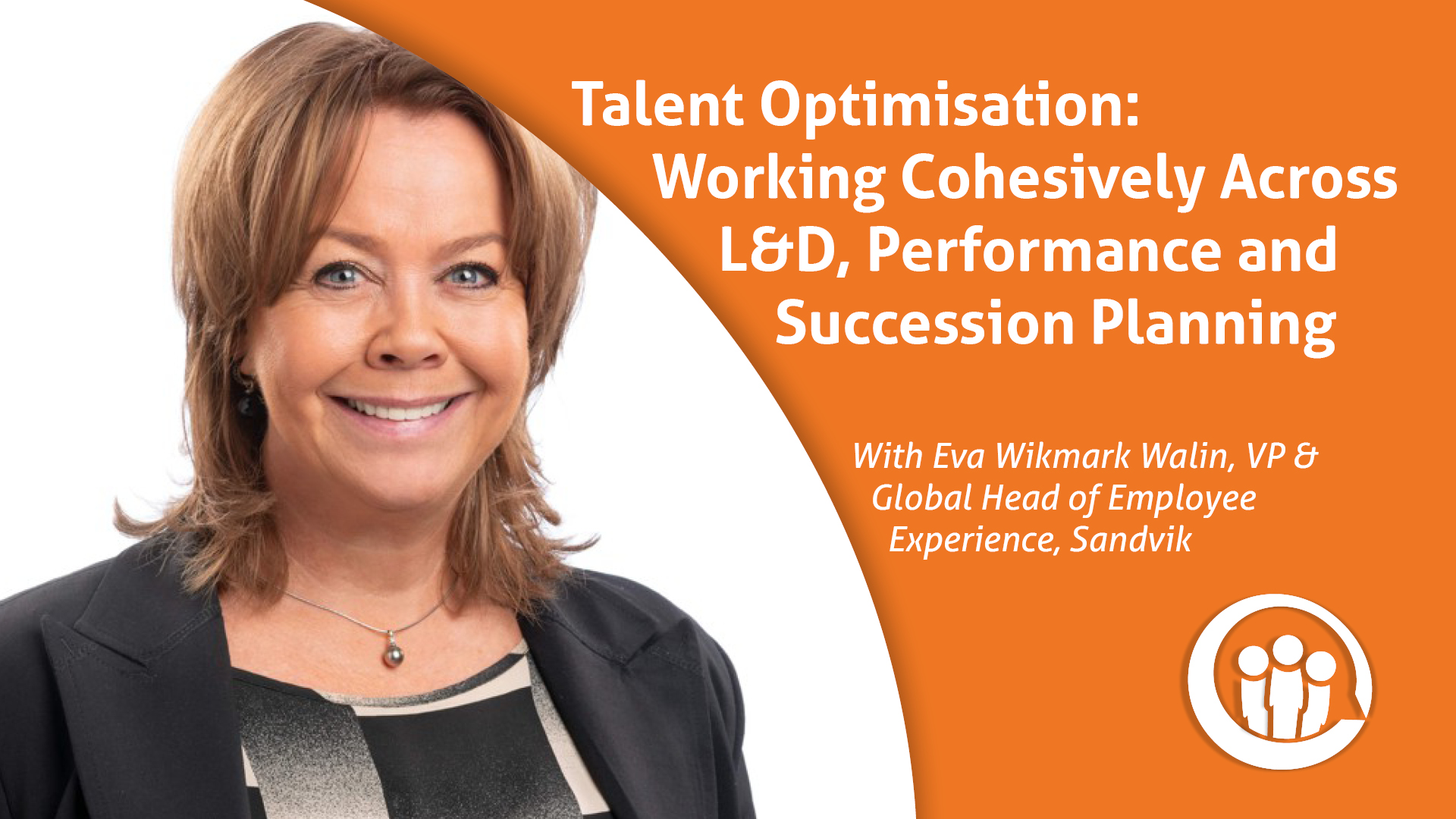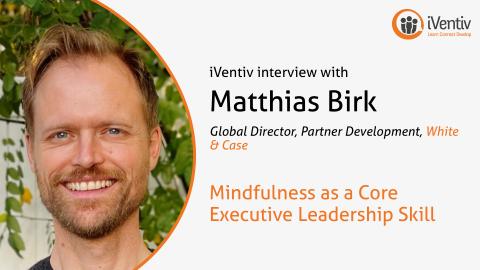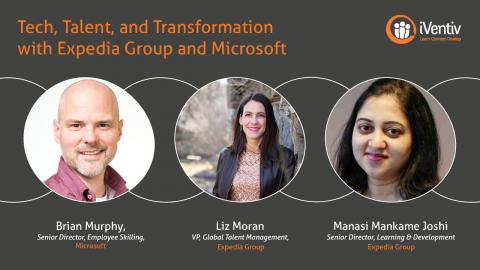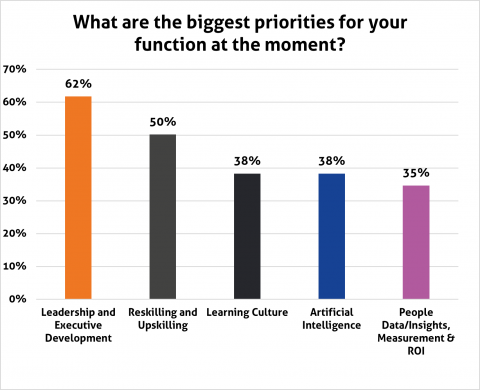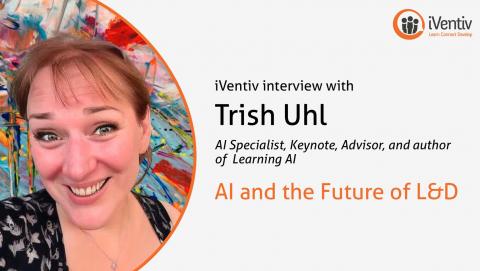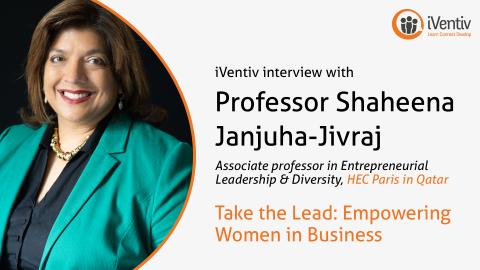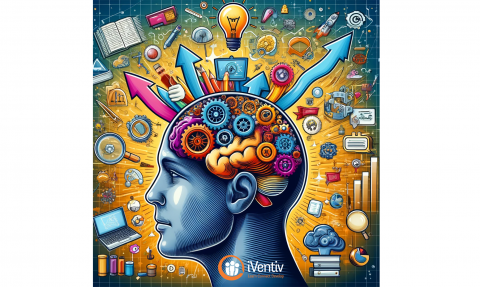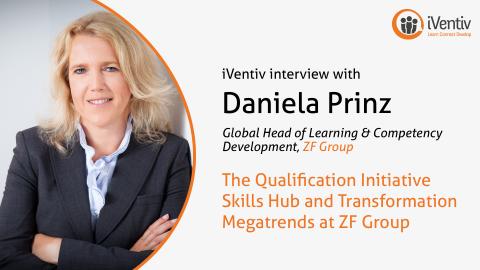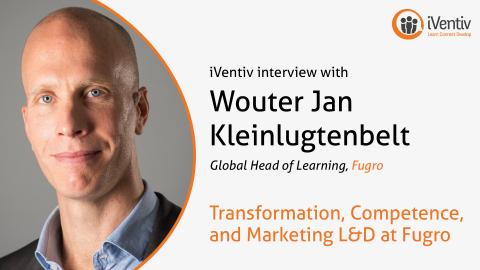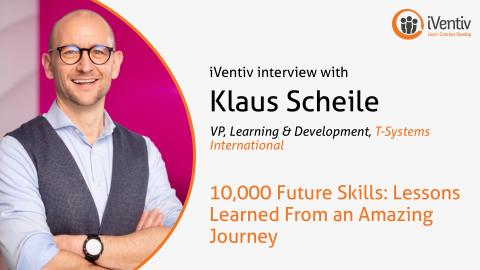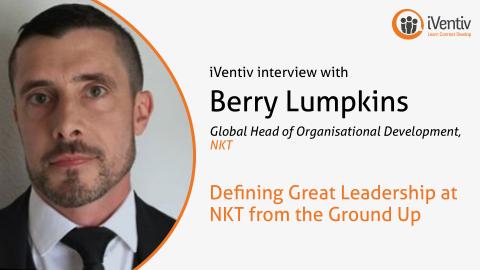Submitted by Kerry Summers on
Connecting the Dots Across the Talent Journey
“What I’ve learned is that I learn something every day at Sandvik,” Eva begins. That mindset underpins Sandvik’s approach to Talent, Learning, and employee development. With 45,000 employees in 170 countries, including a near 50/50 split between blue-collar and white-collar workers, the company is navigating the complex challenge of building unified experiences that meet diverse needs.
Eva leads a team responsible for all Talent processes, spanning Learning & Development, performance management, succession planning, and executive search. At Sandvik, these areas are not treated as separate pillars but are instead deeply interconnected.
“Everything in the employee life cycle or people journey is actually closely connected,” Eva explained. “We collaborate across HR forums where business leaders and people from the Group level all come together.”
The Link Between L&D and Performance
While tools and platforms are important—Sandvik recently launched ‘Your Voice,’ a company-wide engagement platform—Eva emphasised that the foundation of Talent optimisation lies in conversations.
“You need to have continuous dialogues with your manager. That’s also building on the psychological safety that we think is important for innovation, creativity, being able to speak your mind and co-create.” – Eva Wikmark Walin
This people-first philosophy also drives Sandvik’s interest in individualised learning journeys. The company is exploring whether an LXP is the right fit for its future needs, but Eva is clear: “tools can help you, but it's still in the communication and the planning.”
Tailoring Development Across a Diverse Workforce
Given the variety of roles at Sandvik, from those operating heavy machinery to those in office-based functions, there’s a need to design development experiences that can be accessed in different ways.
While Eva in her role at Sandvik tries to make learning “one experience for everyone,” she acknowledges logistical challenges, particularly for blue-collar employees. To bridge the gap, she says that Sandvik is investing in leadership training for supervisors and is ensuring that both managerial and specialist career paths are equally supported.
“We think it's important that everyone has the chance to make their voice heard and have those development conversations.” – Eva Wikmark Walin
Getting the Basics Right Before Scaling
With experience spanning IBM, Telenor, Telia and Transcom, Eva brings a rich cross-industry perspective to the conversation. She noted, however, that tools and systems are only as effective as the foundational processes that support them.
“If you have a lot of tools but you don't have a process at the bottom, it will never work,” she cautioned. “It's the planning, the conversation, having those dialogues—that's the most important part.” – Eva Wikmark Walin
In fact, she believes that L&D, performance development, and succession planning are becoming so intertwined that it makes sense to treat them as one cohesive function.
While Sandvik hasn't yet formally merged these teams, their HR collaboration model ensures close integration across the board.
Moving Towards a Skills-Based Organisation
Like many global organisations, Sandvik is exploring what it means to become a skills-based organisation. “We’re in the beginning,” Eva shared. “We're trying to make sure that we first understand what we want to accomplish and achieve that we don't have today.”
Sandvik is closely aligning this work with its HR tech roadmap and employee data systems, with the goal of providing individualised learning and reskilling opportunities.
“How would you understand and know the gaps for the future when it comes to skills, if you’re not in control of what you already have?” – Eva Wikmark Walin
The transition to a skills-based organisation is not just about taxonomy and systems, she said; it's about creating the visibility and capability to anticipate future business needs and respond proactively.
Embracing a Curious, Growth-Oriented Mindset
Eva champions curiosity and continuous development, both personally and professionally. “I think having a curious mind […] we speak about lifelong learning, but also about learning that lasts,” she reflected.
She shared how combining experience with learning deepens understanding, and how even non-work pursuits—like her studies to become a sommelier—can fuel professional growth.
“Every day I learn something new at Sandvik,” she said. “And I reflect on that in the evening. What did I learn today? I share it with my team when I can.”
For Eva, it’s essential that leaders model this mindset:
“If you're not showing yourself that you're learning and have a curious mindset, then it's going to be hard to prioritise learning for your team.” – Eva Wikmark Walin
This role-modelling, she argues, is crucial in embedding learning as a cultural norm, especially in industries where health, safety, and sustainability are high-stakes and constantly evolving.
Final Reflections
Eva will be sharing these insights at iVentiv's Learning Futures Copenhagen session in April 2025 and sees immense value in cross-industry collaboration:
“It’s always good to discuss and connect. You get the inspiration, you get new thoughts, new networks. You always come out with new friends, new colleagues, new ways of working.” – Eva Wikmark Walin
She added that forums like iVentiv are a chance to align on shared questions, even if the answers aren’t clear-cut. “Usually you end up understanding that no one needs to have the perfect solution… but if someone has, they're also willing to share.”
In a world of accelerating change, organisations that bring learning, talent, and performance together will be best positioned to develop future-ready workforces. As Eva reminds us, it all starts with the mindset.
Eva Wikmark Walin is an accomplished senior executive with over 25 years of global leadership experience across HR, talent management, customer service, and business consulting. She has held key roles in renowned organisations such as IBM, British Telecom, Transcom Worldwide, and Sandvik, where she has been a member of global leadership teams driving transformative strategies.
